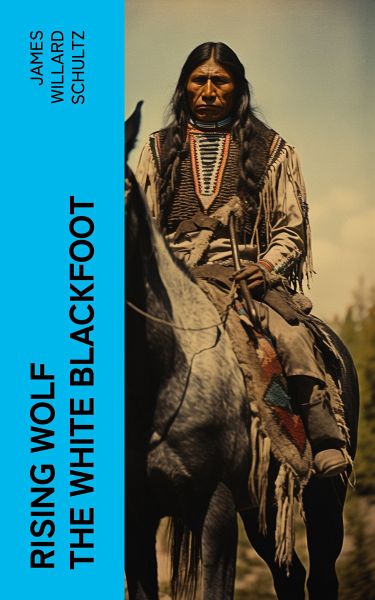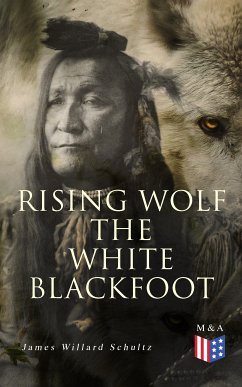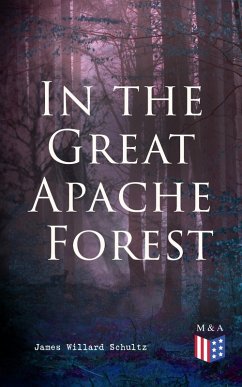
Rising Wolf the White Blackfoot (eBook, ePUB)

PAYBACK Punkte
0 °P sammeln!
"One of the greatest pleasures of my long life on the plains was my intimate friendship with Hugh Monroe, or Rising Wolf, whose tale of his first experiences upon the Saskatchewan-Missouri River plains is set forth in Rising Wolf just as I had it from him before the lodge fires of the long ago. At first an engagé of the Hudson's Bay Company, then of the American Fur Company, and finally free trapper, Hugh Monroe saw more "new country" and had more adventures than most of the early men of the West. During the last years of his long life he lived much with his grandson, William Jackson, ex-Cust...
"One of the greatest pleasures of my long life on the plains was my intimate friendship with Hugh Monroe, or Rising Wolf, whose tale of his first experiences upon the Saskatchewan-Missouri River plains is set forth in Rising Wolf just as I had it from him before the lodge fires of the long ago. At first an engagé of the Hudson's Bay Company, then of the American Fur Company, and finally free trapper, Hugh Monroe saw more "new country" and had more adventures than most of the early men of the West. During the last years of his long life he lived much with his grandson, William Jackson, ex-Custer scout, who was my partner, and we loved to have him with us. Slender of figure, and not tall, blue-eyed and once brown-haired, he must have been in his time a man of fine appearance. Honest he was and truthful. Kind of heart and brave. A good Christian, too, and yet with no small faith in the gods of his Blackfoot people. And he was a man of tremendous vitality. Up to the very last he went about with his loved flintlock gun, trapping beavers and shooting an occasional deer. He died in his ninety-eighth year, and we buried him in the Two Medicine Valley, under the shadow of the cliffs over which he had so many times helped the Pi-kun-i stampede herds of buffalo to their death, and in sight of that great, sky-piercing height of red rock on the north side of the Two Medicine Lake, which we named Rising Wolf Mountain. It is a fitting monument to the man who was the first of his race to see it, and the great expanse it overlooks." Contents: With the Hudson's Bay Company The Sun-Glass Hunting with Red Crow A Fight with the River People Buffalo Hunting Camping on Arrow River The Crows attack the Blackfeet In the Yellow River Country The Coming of Cold Maker Making Peace with the Crows
Dieser Download kann aus rechtlichen Gründen nur mit Rechnungsadresse in A, B, BG, CY, CZ, D, DK, EW, E, FIN, F, GR, H, IRL, I, LT, L, LR, M, NL, PL, P, R, S, SLO, SK ausgeliefert werden.













